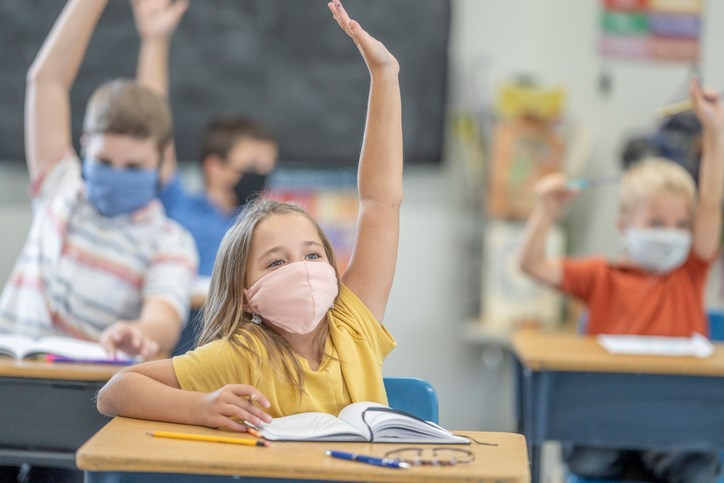Several experts in the education system say that social/emotional learning (SEL) is an important component of formal education.
The experts answered how social/emotional health affects student success in learning. For centuries, Western educational models have seen emotional health as a distraction to learning. Modern research has asked if there is a better way.
“One thing that has become very evident during the pandemic,” said Amanda Olson, superintendent of learning for Prairie South School Division (PSSD), “is that it is just as important to focus on our mental health wellness as it is our physical health wellness. Students, parents, and (teaching) staff need to ensure that they are mentally healthy.”
Olson highlighted the importance to mental health of getting enough sleep, drinking enough water, exercising, eating properly, and, especially, being connected to others.
One challenge in PSSD over the past two years has been disruption to not only academic progress but to student connections. Olson said that no area of students' lives has escaped this disruption: virtual schooling, quarantines and social distancing, cancellations of and changes to events and celebrations, and losing extra-curricular activities, have all affected well-being.
“This fall, our primary focus in Prairie South has been connection and reconnection. This applied and still applies not only to students, but to staff and parents as well. This connection and reconnection work precedes the learning work,” Olson said.
Lorelei Rendall, an advocacy and behaviour consultant for PSSD, said “Life has been more difficult for everyone since the beginning of the pandemic. We have been dealing with sickness, isolation, and uncertainty. We know that being connected and having a sense of belonging are instrumental to our mental, physical, and emotional health. It is this sense of connection and belonging that helps us as individuals to get through tough times and enhances our resiliency.”
At the beginning of this school year, PSSD heard from Dr. Robyne Hanley-Dafoe, a motivational speaker and author whose research focuses on resiliency. She told the school division that “Our survival rate for difficult things is 100 per cent. Despite all the noise that says ‘OK is not enough,’ being OK is the heart of authentic resiliency.”
Hanley-Dafoe’s message was that resilience is not about never having crises or challenges, but instead, is about choosing to move forward despite them. Olson said that message is an important one for parents, children, and teachers and that PSSD is actively using strategies shared during Hanley-Dafoe’s address.
Prairie South works closely with Holy Trinity Catholic School Division and other community partners to create a monthly theme resource package. From October until June, a monthly theme package will be put together by one of the committees’ representatives and their organization. The committee hopes that the community can learn more about the same mental health wellness topic each month. The monthly theme package will be distributed to all staff in both school divisions.
January’s theme is coping skills and co-regulation. Nadine Elder, a PSSD advocacy and behaviour consultant, said that “co-regulation is when we use our own emotional state to bring calm to others. It involves being present with another, taking a moment to pause and breathe together and engaging in other coping strategies. While our ability to cope with various stressors in our lives is situational and differs from person-to-person, we can all benefit from the compassionate and understanding support of another. Brene Brown notes that ‘anxiety is contagious, but so is calm.’”
Olson advised that parents can support their child(ren) by:
- Spending uninterrupted time together as a family or one on one
- Identifying and discussing emotions
- Setting clear expectations
- Establishing healthy habits and routines
- Building resiliency – “You can do hard things!”
- Sharing appreciations with one another
- Completing random acts of kindness
- Practising and modelling coping strategies (square breathing, yoga, listening to calming music, journaling, positive self-talk)
- Making emotional deposits
- Having ongoing discussions about mental health and what it is
- Helping your child identify their strengths and weaknesses
- Setting goals
- Modelling and teaching respect and cooperation
This is part one of a two-part article on social/emotional learning. Part two will be coming soon.




